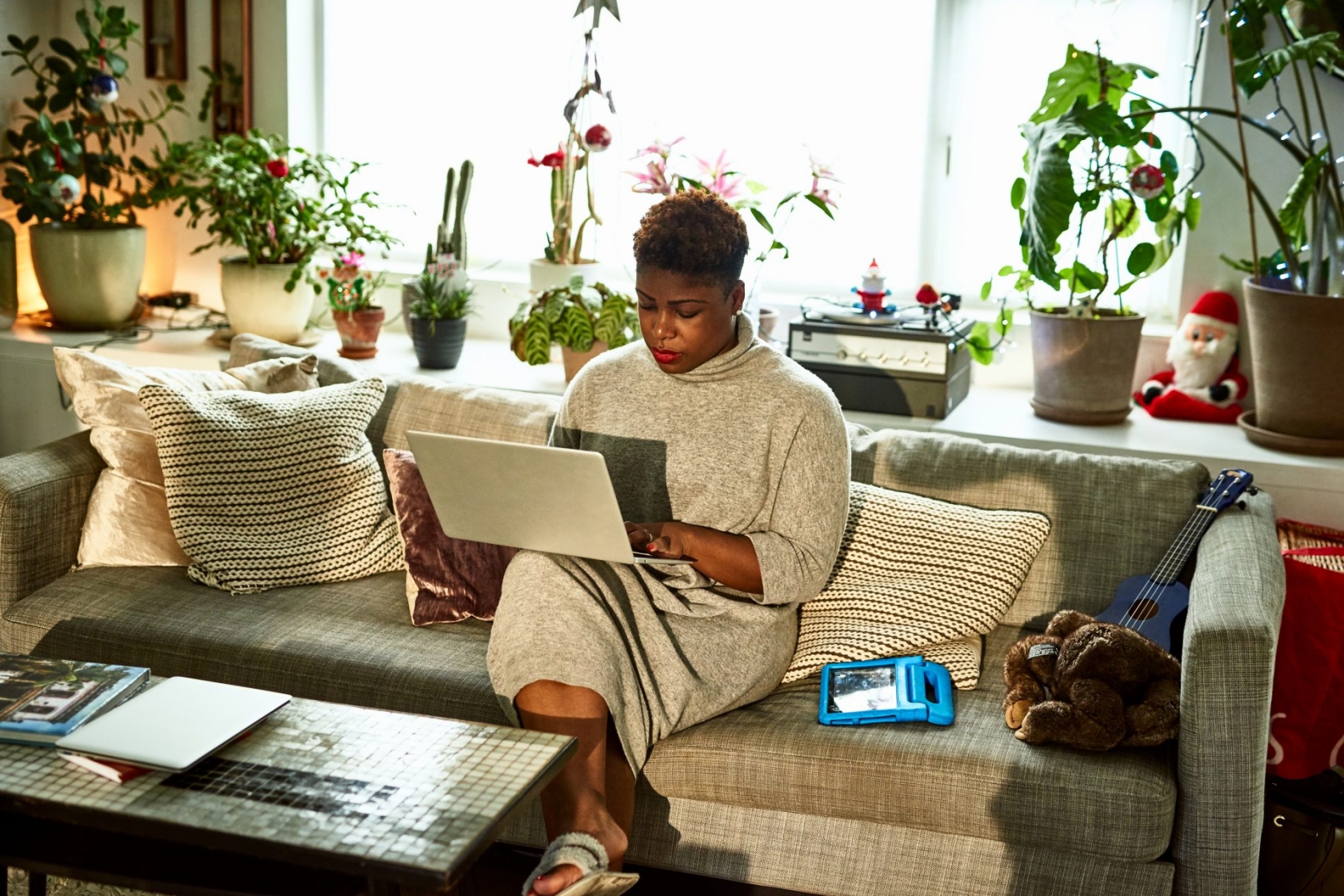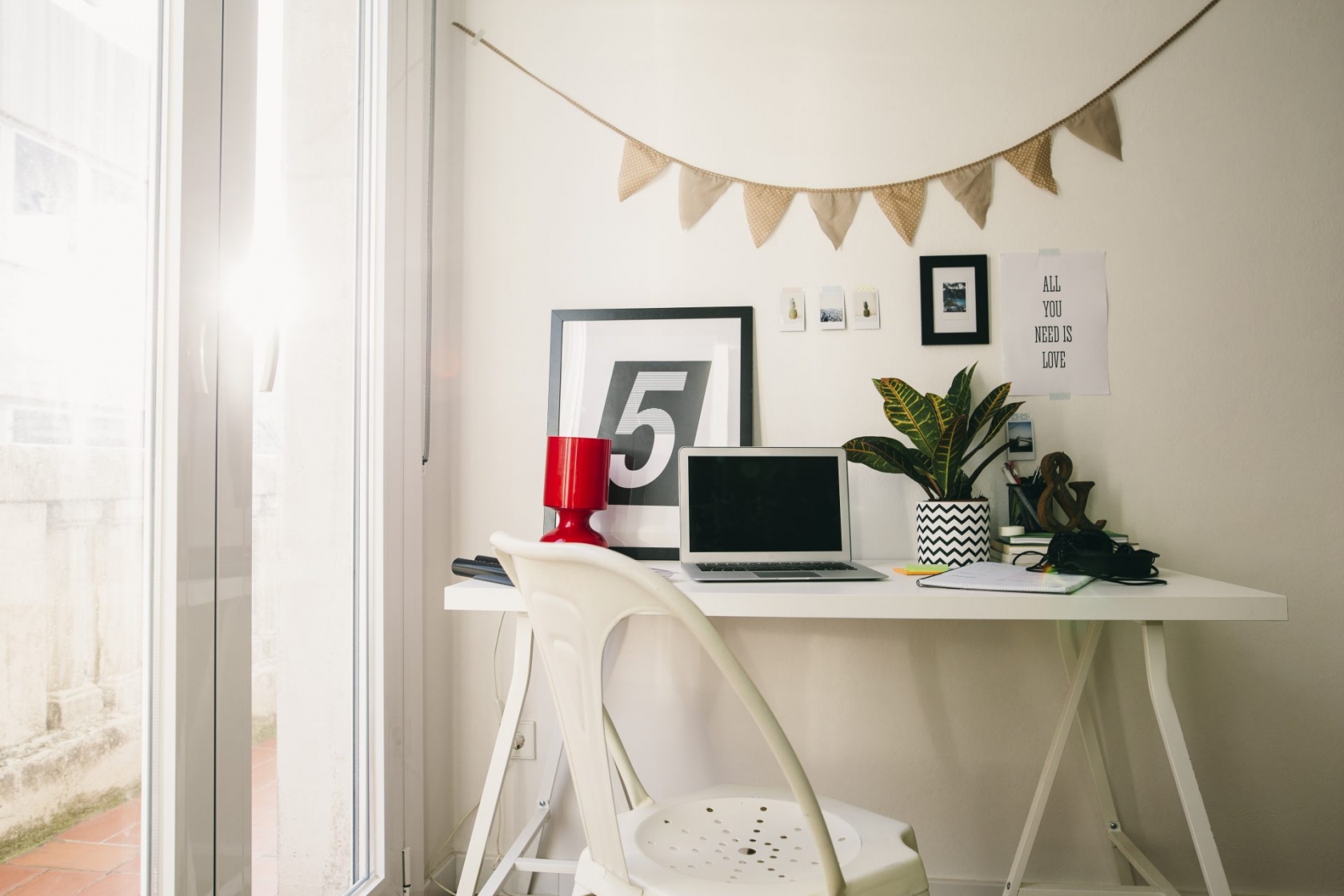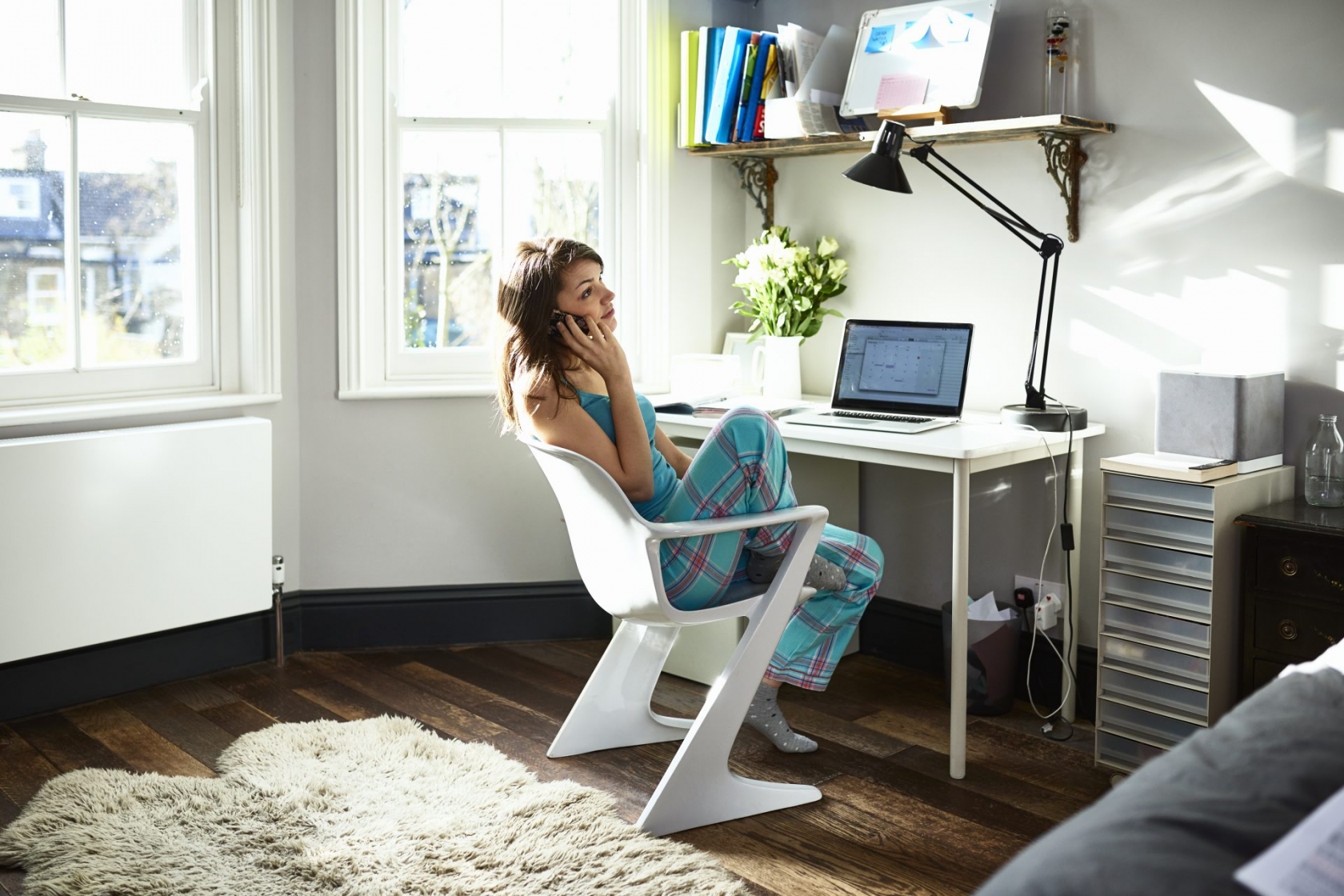Thanks to the pressures of a global pandemic, an unstable jobs market and the isolation of remote working, more and more of us are struggling with our mental health as a result. And that’s why we’re launching Work It Out – our new initiative to help you look after your mental health and wellbeing while working from home.
The relationship between our work and our mental health is inextricable. For many of us, work forms a massive part of our lives – so it’s hardly surprising that the jobs we do and the ways in which we work can have such a big impact on our overall wellbeing.
No situation has brought this into perspective quite like the coronavirus pandemic. Over the last six months, our working lives have come under a microscope as we’ve been forced to experiment with new ways of doing things. In some respects, this has been a good thing – some people have found that working from home has been hugely beneficial for their wellbeing. But for others, things have been less than ideal.
Amid the increased stress of a global pandemic, the extra pressures of an unstable jobs market and recession and the isolation of working from home, there’s been a significant rise in the number of people dealing with issues such as loneliness, anxiety and burnout. In June, a survey from Nuffield Health found that 80% of UK workers feel that working from home has negatively impacted their mental health – and that’s not forgetting the 46% of workers who have struggled with loneliness or the 31% who say they’ve experienced difficulty sleeping.
You may also like
Loneliness: has working from home left you feeling isolated? You’re not alone
While not all of these issues are solely down to our work – these are unprecedented times, after all – the relationship we have with our jobs has a significant role to play when it comes to our mental health during this time.
Of course, not all of this is breaking news. Our working culture was taking its toll on our mental health long before the pandemic came around, and while the disappearance of long commutes and high-pressure environments has likely had a positive impact, it seems that the pandemic has only exacerbated many of the problems we were already experiencing.
With all of this in mind, we thought it was about time we do something about it. Our jobs can be incredibly beneficial for our mental health – for many people, they provide a sense of purpose and achievement which is essential for their overall wellbeing – but only when the relationship we have with our work allows for the things our minds and bodies need to stay healthy.
Besides going to the toilet and making a trip to the fridge, many of us fail to make breaks a priority in our day
One of the biggest problems many of us face when it comes to looking after our mental health at work is not taking proper breaks. Be honest: when was the last time you stepped away from your desk to take a proper break? Besides going to the toilet and making a trip to the fridge, many of us fail to make breaks a priority in our day, especially now we’re working from home.
So, what can we do about it? We’ve got a plan.
This month, we’re launching our Work It Out campaign supported by Mind. We’re asking everyone to start taking their Work 5 A Day – a series of mental health breaks aimed to encourage mental space, connection, movement and stress reduction throughout your working day to address the rise in burnout seen throughout the pandemic. The best bit? They’re quick and easy to complete (so they don’t add another task to your to-do list), and they’re scientifically proven to make a difference – not just to your mental health, but to your creativity and concentration.

Fitting them into your working day should be relatively straightforward. The Health and Safety Executive already recommend 5-10 minute screen breaks for every 50 minutes you spend at a screen, so your mental health breaks can be used to support time away from your screen too (research suggests we are only able to perform ‘well’ for about 45 minutes before our attention starts to wander, anyway).
And alongside your Work 5 A Day (which you can find below) we’ll also be providing lots of ideas, inspiration and advice when it comes to all things mental health at work.
Alongside taking care of your mental health on a day-to-day basis, we’ll be exploring some of the most common mental health issues you might face during your working life – and seeking advice from experts on how to better prepare yourself and overcome challenges you might face.
You may also like
How to look after your mental health if you’ve been made redundant
If you’ve been made redundant during the pandemic or are currently unemployed, we’ll also be looking at how you can take care of your mental health during your job search and speaking to careers experts about navigating the job hunting process and how to boost your confidence as you return to work.
Instead of seeing our mental health as another item on our to-do list, it’s about time we made our wellbeing a top priority – and to do that, we need to start with our daily routine. So, make sure to make a note of the following five prompts and Work It Out with Stylist this October.
Your Work 5 A Day
Walk away from your desk
No matter where you’re working, getting away from your desk from time to time is crucial in giving yourself a mental break from work. We know how hard it can be to drag yourself away from your laptop – especially if you’re feeling extra stressed – but physically disconnecting from your workspace will actually benefit your stress levels and help you to be more productive in the long-term.
It’s thought that when we are doing “thinking work” with our pre-frontal cortex (also used for willpower, emotional self-regulation and logical thinking) this part of our brain can experience fatigue if we don’t take a break. And because we bombard our brains with so much information in one day (a US study once suggested we are exposed to 100,000 words a day), taking a break can also help us to process everything we’re taking in.
And remember: taking a walk away from your desk does not have to be some big event – doing something as simple as hanging the washing out or playing with the dog can be just as beneficial and help you to avoid overloading your pre-frontal cortex.

Organise your time
It may feel counterproductive to take time out of your working day to organise all the work that still needs to be done, but it’s sure to benefit your mental health in the long run. By blocking off some time to consciously plan your day into solo-tasking chunks, you’ll be able to avoid multitasking (something studies have shown can be detrimental to our mental health) and make sure you prioritise your most important tasks.
The act of writing the things we need to do down has also been proven to benefit our mental health by reducing the stress attached to them – and it’s a great way to ensure your mind isn’t cluttered by lots of ‘to-do’s’ and tasks you’re trying to remember, making it easier to navigate the stresses of day-to-day life.
Reach out to others
Without the social contact provided by physically going into the office, many of us have found ourselves struggling with feelings of loneliness and isolation while WFH. It’s understandable – after so long spent surrounded by our colleagues and being able to bounce ideas off of the people around us, working on our own can feel massively isolating.
Making sure to take the time to reach out and connect with others is incredibly important for our mental health, not only because it helps us keep our stress levels under control (when we socialise and have physical proximity to others, we reduce cortisol levels and subsequently reduce stress) but also because loneliness can, in turn, lead to an increased risk of depression, stress, anxiety and low self-esteem.
Plan at least one connection a day – a walk, phone call or chat with a colleague or friend who you can share experiences with.

Keep moving your body
We all know how beneficial exercise can be for our mental health – but finding the time to fit in a 50-minute HIIT workout often isn’t achievable for many of us.
Instead, incorporate walking breaks into your daily routine. Not only are they good for avoiding RSI or other postural issues while working from home (something many people are suffering with after months of working at a makeshift desk), regular exercise is also proven to increase energy, boost productivity and increase happiness.
What’s not to love about that?
5 minutes of breathing
It really is as simple as it sounds: controlled breathing has been proven to be one of the most effective ways to combat stress and is especially effective in high pressure environments.
The NHS recommend 3-5 minutes of controlled breathing for preventing stress, anxiety and panic attacks – to get started, you can check out our guide to the best anxiety-relieving breathing techniques.
If you, or someone you know, is struggling with their mental health, you can find support and resources on mental health charity Mind’s website or see the NHS’ list of mental health helplines and organisations here.
For confidential support, you can also call the Samaritans in the UK on 116 123 or email [email protected].
Images: Getty
Source: Read Full Article
